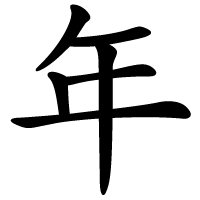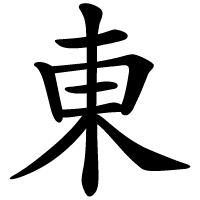Difference between revisions of "Important 한자"
m (minor typo fix 'denistry' -> 'dentistry') |
Pookyjoralyn (Talk | contribs) m (Added 室 to 교무실) |
||
| (3 intermediate revisions by 3 users not shown) | |||
| Line 2: | Line 2: | ||
[[Hanja]] is the Korean name for Chinese characters. More specifically, it refers to those Chinese characters borrowed from Chinese and incorporated into the Korean language with Korean pronunciation. Since a lot of Korean words are derived from Chinese, learning 한자 can be like learning prefixes, suffixes and root words. This section will introduce to you important 한자 characters, some of them which are not beginner level characters. | [[Hanja]] is the Korean name for Chinese characters. More specifically, it refers to those Chinese characters borrowed from Chinese and incorporated into the Korean language with Korean pronunciation. Since a lot of Korean words are derived from Chinese, learning 한자 can be like learning prefixes, suffixes and root words. This section will introduce to you important 한자 characters, some of them which are not beginner level characters. | ||
| − | Please note: | + | Please note: - means there is no Hanja character for it, i.e. 동네 <[[洞]]->. There is no Hanja character for 네, - is not to be confused for 일 ([[一]]). |
Also note that some chinese characters have two ways to pronounce it. For example, '[[女]]', whch means 'female' can be pronounced as both '여' and '녀' in Korean. But as you can see from the examples, 여 is only used when it comes as the first syllable of a word, while 녀 is only used in the middle of a word or at the end. This is a special grammatical rule called '두음법칙' or '머리소리 법칙' and North Korea doesn't follow this rule (nor do they use 한자 anymore). | Also note that some chinese characters have two ways to pronounce it. For example, '[[女]]', whch means 'female' can be pronounced as both '여' and '녀' in Korean. But as you can see from the examples, 여 is only used when it comes as the first syllable of a word, while 녀 is only used in the middle of a word or at the end. This is a special grammatical rule called '두음법칙' or '머리소리 법칙' and North Korea doesn't follow this rule (nor do they use 한자 anymore). | ||
| Line 11: | Line 11: | ||
|- | |- | ||
| Sunday<br>[[File:日.png|150px]]<br>일요일<br>Sun day<br>[[日]] (일) - the sun | | Sunday<br>[[File:日.png|150px]]<br>일요일<br>Sun day<br>[[日]] (일) - the sun | ||
| − | | Monday <br>[[File:月.png|150px]] 월요일<br>Moon day<br>[[月]] (월) - the moon | + | | Monday <br>[[File:月.png|150px]]<br>월요일<br>Moon day<br>[[月]] (월) - the moon |
| − | | Tuesday <br>[[File:火.png|150px]] 화요일<br>Fire day<br>[[火]] (화) - fire | + | | Tuesday <br>[[File:火.png|150px]]<br>화요일<br>Fire day<br>[[火]] (화) - fire |
| − | | Wednesday <br>[[File:水.png|150px]]수요일<br>Water day<br>[[水]] (수) - water | + | | Wednesday <br>[[File:水.png|150px]]<br>수요일<br>Water day<br>[[水]] (수) - water |
| − | | Thursday <br>[[File:木.png|150px]]목요일<br>Tree day<br>[[木]] (목) - tree | + | | Thursday <br>[[File:木.png|150px]]<br>목요일<br>Tree day<br>[[木]] (목) - tree |
| − | | Friday <br>[[File:金.png|150px]]금요일<br>Metal/gold day<br>[[金]] (금) - gold, metal | + | | Friday <br>[[File:金.png|150px]]<br>금요일<br>Metal/gold day<br>[[金]] (금) - gold, metal |
| − | | Saturday <br>[[File:土.png|150px]]토요일<br>Earth day<br>[[土]] (토) - soil, earth | + | | Saturday <br>[[File:土.png|150px]]<br>토요일<br>Earth day<br>[[土]] (토) - soil, earth |
|} | |} | ||
| Line 130: | Line 130: | ||
*교과 <[[敎]][[科]]> - Subject | *교과 <[[敎]][[科]]> - Subject | ||
*교과서 <[[敎]][[科]][[書]]> - Textbook (school) | *교과서 <[[敎]][[科]][[書]]> - Textbook (school) | ||
| − | *교무실 <[[敎]][[務]]> - Teacher's office | + | *교무실 <[[敎]][[務]][[室]]> - Teacher's office |
*종교 <[[宗]][[敎]]> - Religion | *종교 <[[宗]][[敎]]> - Religion | ||
*기독교 <[[基]][[督]][[敎]]> - Christianity | *기독교 <[[基]][[督]][[敎]]> - Christianity | ||
| Line 234: | Line 234: | ||
* 남동생 <[[男]][[同]][[生]]> - A younger brother | * 남동생 <[[男]][[同]][[生]]> - A younger brother | ||
* 남학생 <[[男]][[學]][[生]]> - A boy student | * 남학생 <[[男]][[學]][[生]]> - A boy student | ||
| − | * 남성호르몬 <[[男]][[性]] | + | * 남성호르몬 <[[男]][[性]]-> - Male hormone(testosterone) |
* 득남 <[[得]][[男]]> - Begetting a son | * 득남 <[[得]][[男]]> - Begetting a son | ||
* 남성미 <[[男]][[性]][[美]]> - Masculine beauty | * 남성미 <[[男]][[性]][[美]]> - Masculine beauty | ||
| Line 342: | Line 342: | ||
|examples=*동사무소 <[[洞]][[事]][[務]][[所]]> - The office of a dong, village office | |examples=*동사무소 <[[洞]][[事]][[務]][[所]]> - The office of a dong, village office | ||
*동장 <[[洞]][[長]]> - The chief of a dong office | *동장 <[[洞]][[長]]> - The chief of a dong office | ||
| − | *동네 <[[洞]] | + | *동네 <[[洞]]-> - One's neighborhood, a village |
*명동 <[[明]][[洞]]> - Myeongdong (famous area in Seoul) | *명동 <[[明]][[洞]]> - Myeongdong (famous area in Seoul) | ||
*압구정동 <[[狎]][[鷗]][[亭]][[洞]]> - Apgujeong-dong (famous area in Seoul) | *압구정동 <[[狎]][[鷗]][[亭]][[洞]]> - Apgujeong-dong (famous area in Seoul) | ||
| Line 358: | Line 358: | ||
|examples=*동쪽 <[[東]][[쪽]]> - The east | |examples=*동쪽 <[[東]][[쪽]]> - The east | ||
*동해 <[[東]][[海]]> - The East Sea | *동해 <[[東]][[海]]> - The East Sea | ||
| − | *동남아시아 <[[東]][[ | + | *동남아시아 <[[東]][[南-]]> - Southeast Asia |
*중동 <[[中]][[東]]> - The Middle East | *중동 <[[中]][[東]]> - The Middle East | ||
*동양 <[[東]][[洋]]> - The Orient, The east | *동양 <[[東]][[洋]]> - The Orient, The east | ||
| Line 373: | Line 373: | ||
|char = 力 | |char = 力 | ||
|def = Power, strength, ability (also [[역]]) | |def = Power, strength, ability (also [[역]]) | ||
| − | |examples=*노력 <[[努力]]> - | + | |examples=*노력 <[[努力]]> - effort, hard work |
*능력 <[[能]][[力]]> - ability | *능력 <[[能]][[力]]> - ability | ||
*압력 <[[壓]][[力]]> - pressure | *압력 <[[壓]][[力]]> - pressure | ||
Latest revision as of 09:04, 26 August 2014
Introduction
Hanja is the Korean name for Chinese characters. More specifically, it refers to those Chinese characters borrowed from Chinese and incorporated into the Korean language with Korean pronunciation. Since a lot of Korean words are derived from Chinese, learning 한자 can be like learning prefixes, suffixes and root words. This section will introduce to you important 한자 characters, some of them which are not beginner level characters.
Please note: - means there is no Hanja character for it, i.e. 동네 <洞->. There is no Hanja character for 네, - is not to be confused for 일 (一).
Also note that some chinese characters have two ways to pronounce it. For example, '女', whch means 'female' can be pronounced as both '여' and '녀' in Korean. But as you can see from the examples, 여 is only used when it comes as the first syllable of a word, while 녀 is only used in the middle of a word or at the end. This is a special grammatical rule called '두음법칙' or '머리소리 법칙' and North Korea doesn't follow this rule (nor do they use 한자 anymore).
Days of the week
Let's start with the days of the week, since it's basic. Just focus on the characters 日, 月, 火, 水, 木, 金, and 土.
Sunday 일요일 Sun day 日 (일) - the sun |
Monday  월요일 Moon day 月 (월) - the moon |
Tuesday  화요일 Fire day 火 (화) - fire |
Wednesday  수요일 Water day 水 (수) - water |
Thursday  목요일 Tree day 木 (목) - tree |
Friday  금요일 Metal/gold day 金 (금) - gold, metal |
Saturday  토요일 Earth day 土 (토) - soil, earth |
Important 한자 1
Part 1 contains 한자 characters from ㄱ to ㅁ.
Contents
- 1 Introduction
- 2 Days of the week
- 3 Important 한자 1
- 4 강 <江> - River
- 5 고 <高> - High, Tall
- 6 과 <科> - Section, Department, Science
- 7 교 <敎> - Teach, faith, religion
- 8 교 <校> - School
- 9 구 <區> - District, ward , area
- 10 구 <口> - Entrance, gate, mouth, open end
- 11 국 <國> - Nation, country
- 12 남 <南> - South
- 13 남 <男> - Male
- 14 녀 <女> - Female (also 여)
- 15 년 <年> - Year (also 연)
- 16 대 <大> - Big, large
- 17 도 <道> - Road, Morality
- 18 동 <同> - The same
- 19 동 <動> - Be moving, be in motion
- 20 동 <洞> - Village, division of a 구(區), cave
- 21 동 <東> - East
- 22 력 <力> - Power, strength, ability (also 역)
- 23 모 <母> - Mother
- 24 모 <毛> - Hair, fur, wool
- 25 문 <文> - Writings, sentence, literature
- 26 문 <門> - Door, Family, Specialty
- 27 문 <問> - To ask
- 28 미 <美> - Beauty, America
강 <江> - River | |
| |
고 <高> - High, Tall | |
| |
과 <科> - Section, Department, Science | |
| |
교 <敎> - Teach, faith, religion | |
| |
교 <校> - School | |
| |
구 <區> - District, ward , area | |
| |
구 <口> - Entrance, gate, mouth, open end | |
| |
국 <國> - Nation, country | |
| |
남 <南> - South | |
| |
남 <男> - Male | |
| |
녀 <女> - Female (also 여) | |
| |
년 <年> - Year (also 연) | |
| |
대 <大> - Big, large | |
| |
도 <道> - Road, Morality | |
| |
동 <同> - The same | |
| |
동 <動> - Be moving, be in motion | |
| |
동 <洞> - Village, division of a 구(區), cave | |
| |
동 <東> - East | |
| |
력 <力> - Power, strength, ability (also 역) | |
| |
모 <母> - Mother | |
| |
모 <毛> - Hair, fur, wool | |
| |
문 <文> - Writings, sentence, literature | |
| |
문 <門> - Door, Family, Specialty | |
| |
문 <問> - To ask | |
| |
미 <美> - Beauty, America | |
| |

|
























